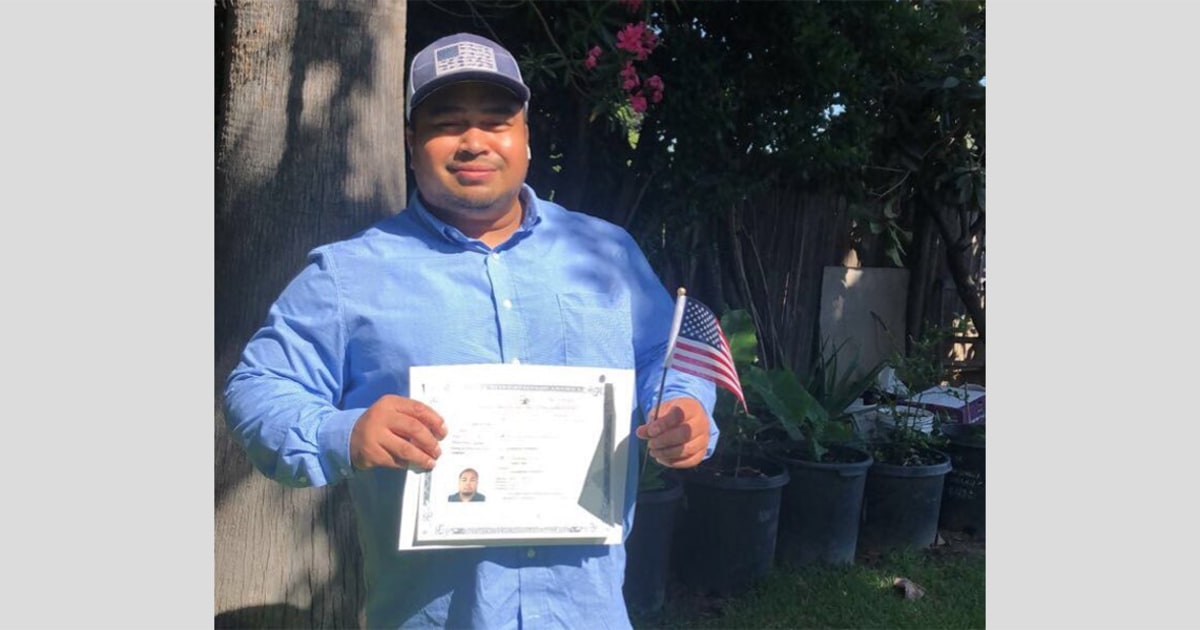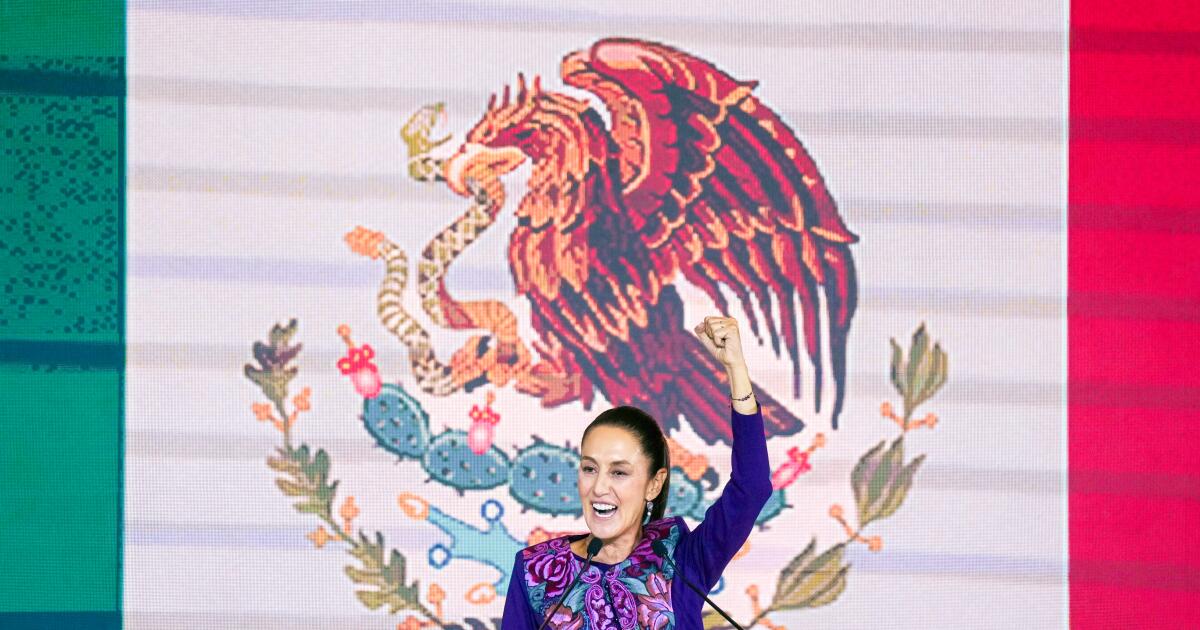Phorn Tem said he never thought he’d come back to the United States after he was deported to Cambodia in April 2018.
Seven months later, he became the first Cambodian deportee to return to the country. And on June 24, he became the first Cambodian returnee to become a U.S. citizen, emerging as a symbol of hope to his community.
“When Phorn got his citizenship, it was really exciting for us,” Nate Tan, co-director of the Asian Prisoner Support Committee, an organization involved in a campaign to allow Cambodian deportees to reunite with their families, told NBC News. “There’s this belief that once you get deported, that’s the final sentence of your life and there’s no chance of returning to a life back here, let alone a life with citizenship.”
More than 700 Cambodians have been deported from the United States since it signed a repatriation agreement with Cambodia in 2002. Four have returned since then. But it’s an occurrence advocates hope will become more common and one they expect to see more in the future, made possible by changing immigration laws.
It’s what allowed Tem to return.
Tem, 35, received a removal order due to a 2009 conviction of possession for sale of marijuana. A 2017 California law allowed him to vacate his order in criminal court. That law allows individuals no longer in criminal custody to file a motion to vacate a conviction or sentence based on two reasons. One is if a conviction or sentence is legally invalid due to prejudicial error (which could include a court-related error), preventing the individual from understanding the immigration consequences of pleading guilty or no contest. The other is if new evidence of an individual’s innocence is discovered.
The Morning Rundown
Get a head start on the morning’s top stories.
Melanie Kim, a staff attorney at Asian Americans Advancing Justice – Asian Law Caucus who worked on Tem’s case, previously said that before this law, it would have been impossible for Tem to reverse the immigration consequences of his drug conviction.
Tem in an email said he felt honored to become a U.S. citizen and that becoming one has lifted several burdens he had previously carried, including the cost of renewing his work authorization card and not being able to travel freely.
“I’m just relieved, and looking forward to exercising my rights as a citizen and voting,” he said.
Citizenship is a possibility not only for Cambodian returnees, but also those facing deportation who are able to get their removal order terminated.
Kim noted that many Cambodian refugees were lawful permanent residents prior to getting caught up in the criminal legal system and receiving orders of removal. If an individual’s order is terminated, their status will be reinstated. Afterward, they can fulfill the normal requirements for citizenship and apply.
“Every time someone returns or someone’s citizenship gets reinstated, there’s this buzz of excitement,” Tan said. “There’s this buzz of possibility, there’s this buzz of glimmering hope that maybe they, too, can.”
The campaign the Asian Prisoner Support Committee is involved in, the Right to Reunite, is advocating for the return of four Cambodian deportees, one of whom has been out of the United States since 2004.
“So much has changed in the last five years alone in regards to what’s a deportable offense and what isn’t anymore,” Tan said. “Some people have been deported on deportable offenses at the time. But because laws change, their offense is no longer deportable.”
Tem’s sister, Sarim, said she hopes her brother’s story inspires other deportees to remain hopeful no matter what situation they find themselves in. Like her brother, she didn’t think he would return, she said. But she didn’t allow that to stop herself from working with Kim to find a way to get him home.
“Never give up the fight. Keep trying. And if it takes some time, it might take some time,” she said. “Just do something better with yourself. Become better out there. Do different.”
Tem recalled how, when he was deported, everyone around him told him not to waste any time trying to return because nobody had done it before.
But for individuals facing deportation and those who have been deported, including those who may have already established new lives in Cambodia, he encourages them to consult with an attorney to explore their options and to monitor immigration laws.
“Seek some help even though you have a career and family already out there,” he said. “I believe everyone should have the right to return, even for a visit.”



















